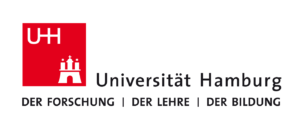Samantha Lutz
Short Description
Samantha Lutz is responsible for the day-to-day management of POEM. She is a PhD candidate, early research fellow, and lecturer at the University of Hamburg, where she is affiliated with the Institute for Anthropological Studies in Culture and History. Her research interests combine critical heritage studies, digital cultures, and sustainability, with an active interest in digital and (post-)modern living heritage practices in Europe. Her thesis topic relates to understandings of culture and sustainability and practices of sustainable development in memory work.
E-Mail: samantha.lutz@uni-hamburg.de

Areas of Research
- Digital heritage and intangible heritage
- Sustainability and sustainable development
- Discourse analysis and discourse ethnography
- Computer-assisted qualitative data analysis
- Collaborative research and cross-generational learning in Cultural Anthropology
- Urban diversity and politics
Selected Publications
Lutz, Samantha (Ed.). Special Issue {D1G1TAL HER1TAGE}, Hamburger Journal für Kulturanthropologie, 07 (2017).
Lutz, Samantha / Koch, Gertraud (2017). Sustainability, Sustainable Development and Culture. Diverging Concepts and Practices in Heritage Work. In: Marie-Theres Albert, Francesco Bandarin & Ana Pereira Roders (Eds.). Going Beyond. Perceptions of Sustainability in Heritage Studies No. 2. Springer: Wiesbaden.
Newsletter
If you want to make sure you are up to date with POEM, please sign up to our newsletter. We will keep you informed on a regular basis via email of news from the European Training Network POEM, its partners, and projects.
Please be aware of the terms & conditions concerning data protection.
POEM
Coordination and Project Management
University of Hamburg
c/o: Institute for Anthropological Studies in Culture and History
Grindelallee 46 | postbox: H8 | 20146 Hamburg | Germany
+49 (0)40 42838-9940
Concepts, strategies and media infrastructures for envisioning socially inclusive potential futures of European Societies through culture.
This project has received funding from the European Union’s Horizon 2020 research and innovation programme under the Marie Skłodowska-Curie grant agreement No. 764859.


